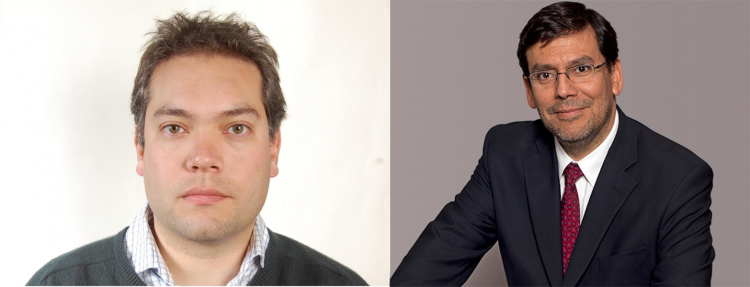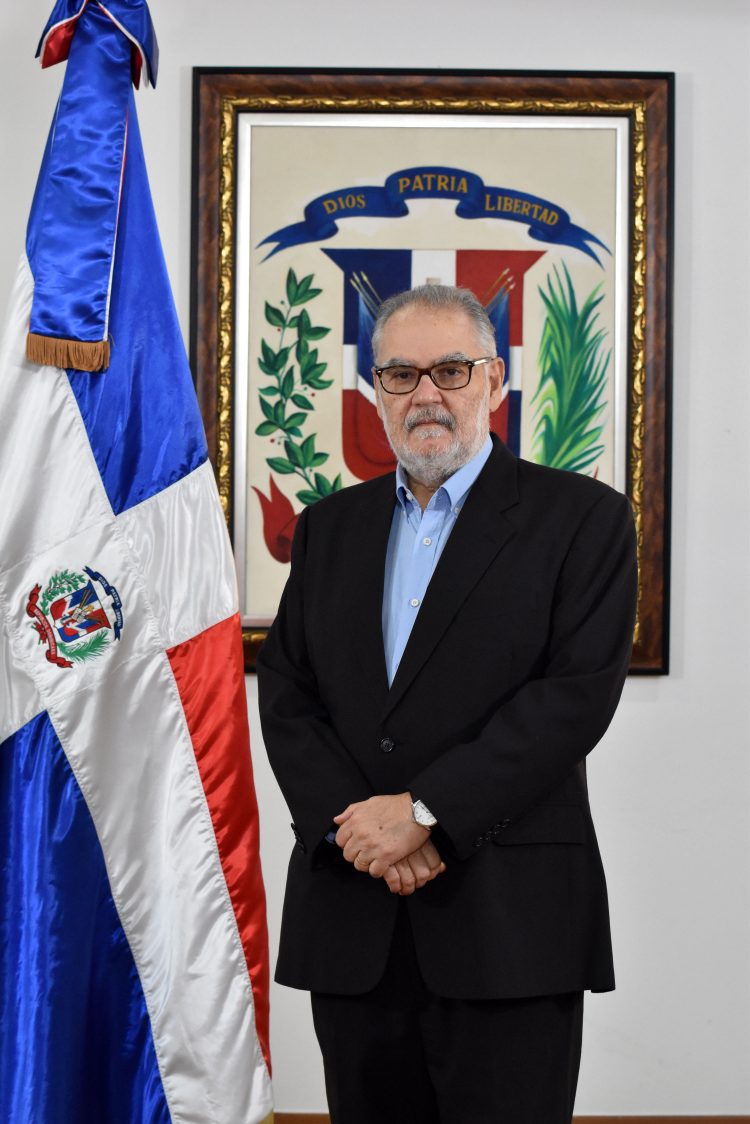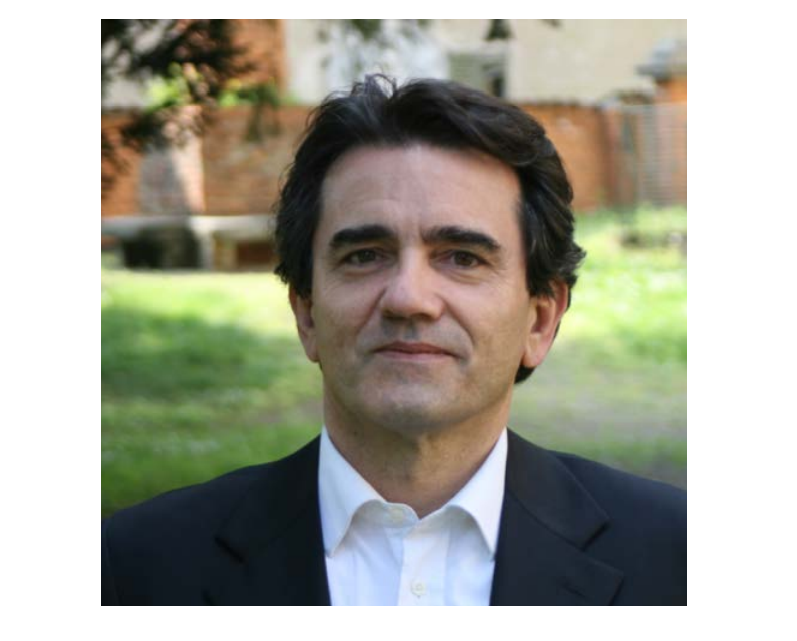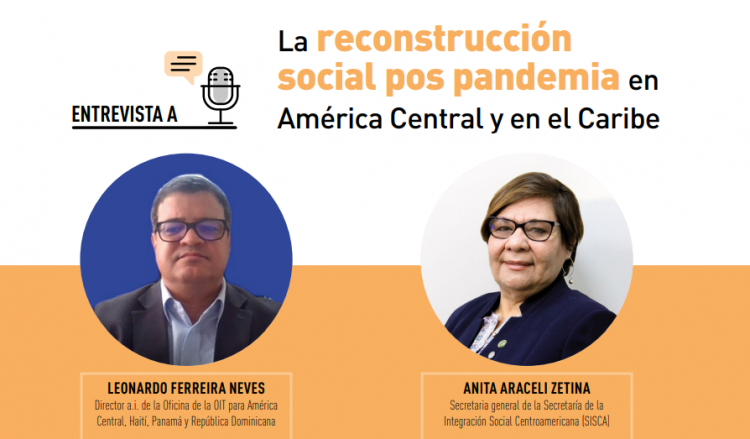Alberto Arenas de Mesa (Director) and Carlos Maldonado Valera (Social Affairs Officer), Social Development Division of the Economic Commission for Latin America and the Caribbean (ECLAC)

Foto: Alberto Arenas de Mesa y Carlos Maldonado Valera
Almost simultaneously and ubiquitously, the Covid-19 pandemic devastated our societies and shut down economies like never before. The health crisis revealed a flaw in prevailing development models, patently obvious in Latin America and the Caribbean (LAC), the enormous vulnerability of the established order to the threat of catastrophe, in many cases after decades of State neglect of many areas of social and economic life.
In LAC, the effects have been devastating: in 2019-2020 the extreme poverty rate rose to 12.5% and the poverty rate 33.7%, inequality in income increased by 2.9% (Gini index), while moderate and severe food insecurity affected 40.4% of the population in 2020, 6.5 pp more than in 2019. And yet, the State was called upon not only to address the health emergency, but also to relaunch economies, and to support the income and jobs of millions of people and social strata not usually covered by traditional social programmes. Emergency transfers to vulnerable sectors in the region made it possible to mitigate the rise in poverty in 2020, benefiting 326 million people, 49.4% of the population (ECLAC, 2021a).[1]
For a reconfiguration between the State, the markets, families and civil society to generate well-being and protect against adversity, far more than a package of emergency reforms from the government in power or sophisticated proposals designed by experts among four walls is required. If we add the pressing need to adopt sustainable production and consumption patterns, this type of reconfiguration entails new balance in the use and redistribution of the resources and capacities available in each society, which requires broad social and political legitimacy. In short, a new social pact is required in all latitudes for a profound change in the direction of development.
It is no coincidence that the Secretary General of the United Nations has just made a powerful call to define new social pacts in this complex scenario. In its most recent report, Our Common Agenda (September 2021), he says: “now is the time to renew the social contract between Governments and their people and within societies, so as to rebuild trust and embrace a comprehensive vision of human rights. People need to see results reflected in their daily lives. This must include the active and equal participation of women and girls, without whom no meaningful social contract is possible. It should also include updated governance arrangements to deliver better public goods and usher in a new era of universal social protection, health coverage, education, skills, decent work and housing, as well as universal access to the Internet by 2030 as a basic human right. I invite all countries to conduct inclusive and meaningful national listening consultations so all citizens have a say in envisioning their countries’ futures.” (United Nations, 2021, pages 3-4.). In short, he urges countries to carry out extensive consultations to listen to all citizens and allow them to help imagine the future.
And he is right. We are facing an extreme situation that has opened windows of opportunity for structural change in social, economic and political terms. To be specific, ECLAC sees the pandemic as a critical juncture[2] that is presenting a historic opportunity for the construction of universal, comprehensive and sustainable social protection systems and for progressive movement towards true welfare states (CEPAL, 2021b, 2021a).
Historically, ECLAC has argued that the social pact is a political instrument based on broad and participatory dialogue, useful for obtaining consensus and structural agreements (CEPAL, 2010, 2014; Hopenhayn y otros, 2014). As a process, it should be an explicit attempt to address issues left out by the usual channels, thereby building new bridges. Therefore, a new social pact should give voice and influence to sectors and groups of the population subject to discrimination or marginalisation in order to broaden the dialogue and the adoption of the results. The construction of welfare states and their financing should be at the centre of this broad social dialogue to redistribute and increase the resources invested in the common well-being.
The starting point for LAC is complicated, with high levels of inequality in multiple spheres and a high level of mistrust towards governments, social institutions, political parties, the private sector and among individuals. In the short term, the social uprisings that occurred in several countries in 2019-2021 show a growing social unrest that requires responses that include vulnerable sectors and the middle class. And in the long term, there is another powerful argument to mobilise intentions and resources, within and beyond the region: without the universal guarantee of a certain level of well-being, the transition towards more sustainable modes of consumption and production will continue to appear as a hazardous, or even unacceptable, for broad sectors of our societies. In this, this new welfare state must generate certainty and sustainability, before a citizenship in the throes of a lengthy crisis.
References:
Capoccia, G. and RD Kelemen (2007), “The Study of Critical Junctures: Theory, Narrative, and Counterfactuals in Historical Institutionalism ”, World Politics, vol. 59, No. 3, April.
CEPAL (2021a), “La paradoja de la recuperación en América Latina y el Caribe. Crecimiento con persistentes problemas estructurales: desigualdad, pobreza, poca inversión y baja productividad”, Informe Espacial COVID 19, N.º 11, Santiago, Naciones Unidas, julio.
— (2021b), “Panorama Social de América Latina 2020” (LC/PUB.2021/2-P), Santiago, Naciones Unidas, marzo.
— (2014), “Pactos para la igualdad: hacia un futuro sostenible” (LC/G.2586(SES.35/3)), Santiago, Naciones Unidas, abril.
— (2010), “La hora de la igualdad. Brechas por cerrar, caminos por abrir”, N.º LC/G.2432(SES.33/3), Santiago.
Hopenhayn, M. y otros (2014), “Pactos sociales para una protección social más inclusiva. Experiencias, obstáculos y posibilidades en América Latina y Europa”, Seminarios y conferencias, N.º 76 (LC/L.3820), Santiago, CEPAL, mayo.
Weyland, K. (2008), “Toward a New Theory of Institutional Change”, World Politics, vol. 60, No. 2, January.
[1] Poverty increased from 189 million in 2019 to 209 million in 2020 – which could have been 230 million -, and from 70 million in 2019 to 78 million – which could have been 98 million – in the case of extreme poverty.
[2] The current global crisis can be viewed as what historians call a “critical juncture”, that is, an exceptional moment of deep crisis that redefines what is possible and imaginable, where stakeholders are willing to take greater risks and change the status quo because they face enormous uncertainty (Capoccia and Kelemen, 2007; Weyland, 2008).



